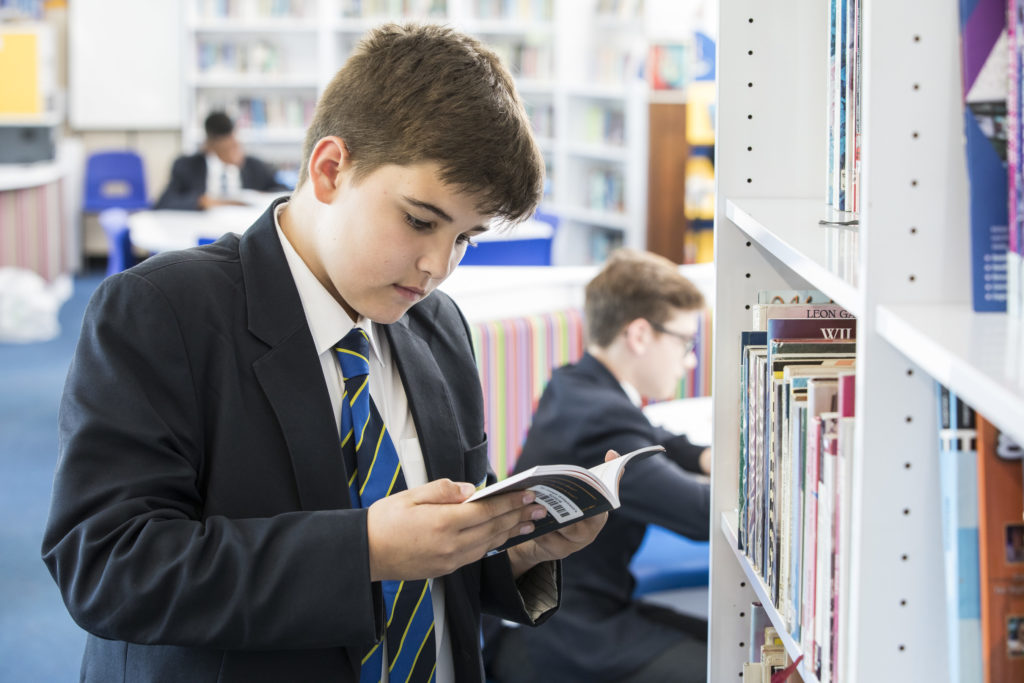Our intent in Life Skills is that pupils learn about themselves and others.
The National Curriculum dictates that all schools should promote the spiritual, moral, cultural, mental and physical development of pupils at the school and of society, and prepare pupils at the school for the opportunities, responsibilities and experiences of later life.’ This is a key focus for us within the Life Skills department.
Covering the requirements of Religious Education, Citizenship and PSHE Education, The Life Skills department aims to provide all pupils with significant knowledge and understanding of their own feelings, views and beliefs as well as the feelings, views and beliefs of others. Students will consider how these impact and shape life in Britain. We aim to prepare students for making informed personal decisions on matters relating to morality, belief, citizenship and their own lives. We will do this by fostering an environment of tolerance and dialogue rooted in an understanding of ourselves and others. We aim to give students the skills to express and explain their own opinions, where applicable supporting them with evidence and examples and to be able to compare these opinions to those of other individuals and groups within society. Students will be able to analyse and critique opinion and evidence considering reliability and intent in order to reach evaluative conclusions. Life Skills is taught within timetabled lessons and tutorial sessions at Key Stages 3, 4 and 5 (Key Stage 5 now get Life Skills lessons up to Year 12). Year 12 and 13 have external speakers and compulsory conferences which enable students to develop their knowledge and understanding from prior learning.
We ensure that our resources are accessible to all in the Life Skills department. Font sizes are sufficiently large and appropriate background colours are used so as to accommodate for those with visual impairments and conditions such as Irlen Syndrome. Presentation slides across the department have been simplified to reduce unnecessary distraction and reduce load on processing. Where images are included they are selected carefully to aid understanding and knowledge retention. Activities in Life Skills lessons are often ‘low-bar, high ceiling’ meaning that all can access activities but there is scope for high levels of stretch and challenge in work. This is aided by regular opportunities for talk time to enhance comprehension before writing or verbalising responses. Check lists, writing frames and sentence starters are provided where necessary to help students with organising, processing and applying information. Religious quotation sheets are also provided to ease cognitive load and allow students to focus on comprehension and application rather than being hindered by difficulties in recalling information.
We acknowledge that understanding the viewpoints of others can be a particular issue for some of our students on the autistic spectrum in particular. To aid those students we spend additional time in lessons modelling how we consider the views of others and model displaying empathy and tolerance of others viewpoints.
Life Skills pays great focus to literacy throughout our curriculum. This is both literacy as a life skill but also disciplinary, subject specific literacy. Recognising that subject specific vocabulary can be a barrier to learning, key terminology is made explicit throughout lesson resources and revisited repeatedly via regular recap and recall activities. Subject specific vocabulary is also a significant focus of termly Google quizzes.
We use talk-time to enhance literacy by allowing students to talk through ideas and concepts. This helps students to comprehend and voice their ideas before committing them to the page. Sentence starters are provided for all students in year 7. These are then phased out as students progress through the key stages, but still provided to those that require it. Writing frames are also provided to model how to structure answers effectively. Essay writing is a big focus of our department. We begin in year 7 by focusing on PEEL paragraphs, breaking down the paragraphs into manageable sections and then building up to full essays later in the year. Students are always given the opportunity to plan essays for their homework so that they have coherent ideas and structures to use in assessments. Department essay planning sheets are provided as an option for all students.
We encourage the love of reading, with the importance of books being discussed a number of times across our schemes of work. We take this as a starting point when exploring the holy books of various faiths. In year 7 we take part in the Pop-Up Author project and all students read a novel by an Islamic author. They get the chance to meet the author, ask them questions about their work and the novel, as well as reviewing the book that they have read.
Choice of content
The Life Skills department is committed to providing pupils with the knowledge and skills required to meet their needs both now and in the future. We deliver a comprehensive PSHE program which is based on best practice and advice from relevant organisations. We deliver RSE education in line with the Secretary of State’s guidance. In addition to this we were early adopters of the additional statutory elements of PSHE education as well as encompassing much of the non-statutory but advisable (as directed by the PSHE association) content. We are supported in our delivery of lessons on radicalisation and extremism by interactive resources provided by the University of Kent and work closely with advisors from Medway Health Directorate to ensure we are meeting the needs of our pupils at a local level. Lessons and schemes of work are designed to be inclusive and to direct pupils towards additional support where this may be required. Pupils are taught the skills to listen to each other in a sensitive manner. Topics are taught at an age appropriate stage and are often revisited at relevant points during the year, for example Mental Health awareness week or Internet Safety day. From September 2022 we will be delivering PSHE in timetabled Life Skills lessons in Y12 and continuing to support this with a tutorial program and a variety of external visitors to school throughout Y12 and 13. We follow the Hodder KS5 PSHE scheme of work. This delivers the RHSE curriculum and links closely to the PSHE Association guidance. Additionally we have liaised with the 6th Form Team and Safeguarding Lead to ensure that our content adequately meets the needs of our students.
make educated decisions on aspects of life including relationships, social media, drugs and physical and mental health, as well as to inform and educate them on issues such as consent, bullying, gangs and discrimination. This knowledge and guidance will allow students to make sound decisions regarding complex contexts throughout their time at SJWMS and beyond, as well as enabling our youngsters to develop healthy, nurturing relationships and developing their ability to remain safe and make informed decisions in, and outside, of school. Students are given the skills to express and explain their own opinions (where applicable supporting them with evidence and examples) and to
be able to compare these opinions to those of other individuals and groups within society. The curriculum is aligned with the Government’s Statutory guidance on Relationships and Sex Education (RHSE) and is LGBTQ+ inclusive.
How we teach about protected characteristics and consent
No matter what type of school they attend, it is important that all children gain an understanding of the world they are growing up in, and learn how to live alongside, and show respect for, a diverse range of people.
We promote equality and pupils’ understanding of the protected characteristics (age, disability, gender reassignment, marriage and civil partnership, pregnancy and maternity, race, religion or belief, sex, sexual orientation) through our curriculum, which is referenced in our RSHE Policy.
This curriculum is planned and delivered so that children develop age-appropriate knowledge and understanding during their time at the school.
Year 7 learn about human rights and equality in Life Skills lessons in Term 4, while Year 8 learn about prejudice and discrimination in Term 2 lessons. The overarching concept of ‘protected characteristics’ is first introduced to students in Year 7 Term 3 in work about values, Year 8 during Term 2 lessons on prejudice and discrimination, in Term 4 via Life Skills tutorials work, and again in Term 6.Year 9 learn about hate crimes and protected characteristics in Term 6 Life Skills lessons. Year 10 cover prejudice, discrimination and protected characteristics in Term 2 Life Skills lessons, while Year 12 study sexuality, gender and protected characteristics in Term 4. In Term 3 they study workplace bullying / sexual harassment and whistleblowing. In term 6 they revisit LGBTQ+.
Students are taught about the nine particular characteristics designated as protected at different times of the year, in Life Skills lessons.
For instance, Year 8 in Term 2 learn about prejudice and discrimination which includes discussion of employment rights in terms of gender, pregnancy, race, sexuality and disability. Year 8 in Term 4 have lessons on protected characteristics and hate crimes which cover religious and racial discrimination. Year 9 in Term 2 learn about relationships and marriage and family types. Teenage pregnancy and sexual orientation is discussed throughout lessons on sex, consent and contraception. Year 10 in Term 4 have lessons on gender equality and reassignment, consent and marriage/civil partnerships. Year 11 in Terms 1 and 2 have lessons on sexuality, with a focus on homosexuality. Year 12 have lessons on gender reassignment in Term 4 and sexuality in Term 6.
There are few concepts more important for students to understand, and we teach consent to Year 7 term 4 with lessons on puberty, which covers ‘Your body and consent’. Consent is also taught to Year 7 in Term 6 with a focus on property. Year 8 are taught about sexual harassment and consent in Term 6. Year 9 in Term 2 learn about consent and dealing with rejection, and consent is revisited in Term 6. Year 10 learn about gender equality and consent in Term 4. Year 11 are taught about giving consent in Term 1 and in Term 3 have lessons on body image and pornography, including age-appropriate work on non-consensual sex found in pornography. Year 11 advance, in Term 3, to work on exploitation including forced marriage, domestic servitude and sexual exploitation. Year 12 revisit consent in Term 6.




